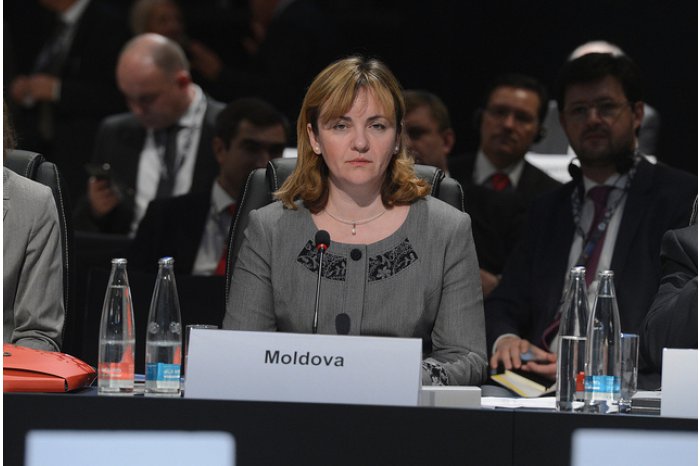Moldovan foreign ministry gives speech at OSCE Ministerial Council meeting
18:40 | 04.12.2014 Category: Official
Chisinau, 4 December /MOLDPRES/ - Deputy Prime Minister, Foreign and European Integration Minister Natalia Gherman today gave a speech at the 21st meeting of the OSCE Ministerial Council, held in Basel, Switzerland. Gherman presented Moldova’s approaches as to the ways of fostering the European security, solving the crisis in the eastern regions of Ukraine and Transnistrian conflict settlement, the Foreign and European Integration Ministry’s information and media communication services has reported.
Natalia Gherman said that the present crisis in the European security system was caused by the promotion of national interests to the detriment of international principles and rules, stipulated by the Helsinki Final Act and other fundamental documents. In this respect, Moldova supports the need to significantly advance the dialogue within the Helsinki+40 Process, focused on strengthening the OSCE’s role. The minister also welcomed an initiative the the Swiss OSCE chairmanship to create the Panel of Eminent Persons, which will centre on ways to consolidate the European security.
As for the crisis in the Ukrainian eastern regions, Gherman backed the efforts undertaken by OSCE, in order to stabilise the situation on the ground. She highlighted that an efficient ceasefire regime could be ensured by extending the OSCE Observation Mission at the Ukrainian-Russian border. The Moldovan official emphasised the need to avoid the appearance of a new frozen conflict in eastern Ukraine and added that a viable political solution was to be based on the principles of sovereignty and territorial integrity of Ukraine, within its internationally recognised borders.
As far as the Transnistrian conflict settlement is concerned, Gherman said that the strategic goal of the Moldovan authorities was to find a comprehensive political solution based on observing Moldova’s sovereignty and territorial integrity, by identifying a special statute for the Transnistrian region. The official spoke out for overcoming blockages within the five-plus-two talks and solving problems faced by the Moldova-run Latin-script schools from Transnistria, as well as farmers from eastern Dubasari region faced.
At the same time, Gherman confirmed the need of the idea to turn present peacekeeping mission into a multinational civil mission under international mandate. Natalia Gherman reiterated the necessity to give final touches to the process of withdrawal of the Russian military forces from Moldova’s territory, in line with the international commitments.
Natalia Gherman underscored that the 30 November parliamentary polls showed that the Moldovans had chosen the way to continue democratic reforms and the European integration.

